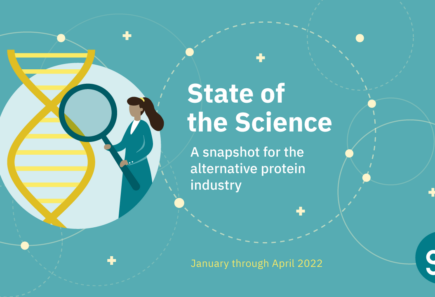
Defining alternative protein
Given how essential alternative proteins are to a more resilient global food system, the term needs to be universally understood, on the tip of more tongues, and at the top of more agendas.

Given how essential alternative proteins are to a more resilient global food system, the term needs to be universally understood, on the tip of more tongues, and at the top of more agendas.

This guide will help you jumpstart your new student group, build leadership skills, maximize your impact, and keep your group operating effectively.

Join Dr. Priera Panescu and Dr. Alejandro Marangoni to learn how the emerging field of alternative proteins is creating cutting-edge career and research opportunities for scientists focused on fats and oils.

Join Dr. Atze Jan van der Goot, Professor of Sustainable Protein Technology at Wageningen University & Research, to learn about his research using press cakes from sunflower and rapeseed in the development of meat analogs.

Listen to GFI's Dr. Liz Specht talk about the future of food on The Economist podcast The World Ahead.

A new resource series covering alt protein technology and developments in the broader scientific ecosystem

In our guide, you’ll learn about the steps needed to raise awareness and excitement about alternative proteins throughout your university.
To date, no robust environmental assessments have been conducted to compare alternative seafood to its conventional counterparts. An open-access, quantitative analysis of the relative environmental impacts of alternative seafood will help garner support for the industry from policymakers, nonprofit organizations, consumers, investors, foodservice outlets, and retailers.
A variety of plant-based scaffolds present the opportunity to combine the natural nutritional and structural benefits of plants with the taste and high protein of cultivated meat. Bacterial nanocellulose from coconut water is a particularly promising scaffold material with its FDA approval status and beneficial nutritional and cell adhesion properties.
As the leading global trade fair, Anuga FoodTec is the most important source of impetus for the international food and beverage industry.